by Alena Sokhan
J.S Bach’s ‘Tocatta für Klavier’ is playing in the background as Italian painter Flavio de Marco begins our chat with a digression on the art of martini cocktail making. De Marco’s ground floor studio is spacious but full of all the necessary things: an impressive collection of CDs, painting materials, tables with notes and travel agency brochures, a bar, various unexpected objects, a shelf of books, and sliding french doors that open onto the courtyard. De Marco is a boisterous character who is somehow both eccentric and classy, talking with enthusiasm and an infectious energy.
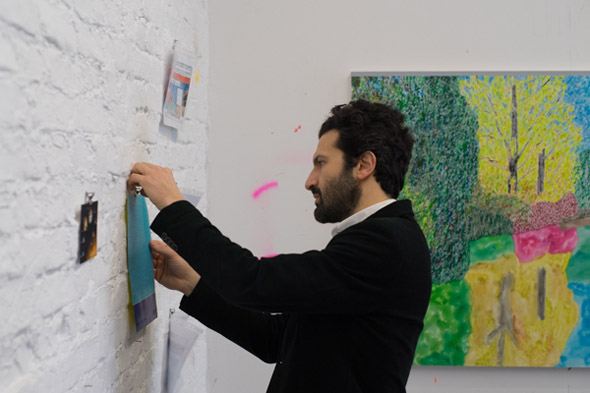
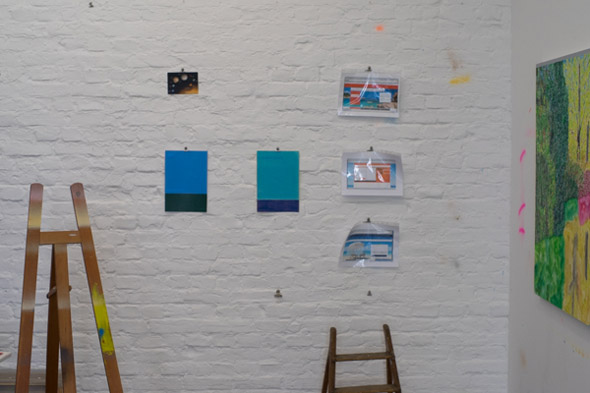
De Marco’s work explores Western art’s relationship to environments, engaging the historical genre of landscape painting with a post-modern gaze. He considers how we see the world most of the time (through a smartphone or a computer screen) and what we see (a smartphone or computer screen). These screens are the environment we live in and the scenery we encounter daily.
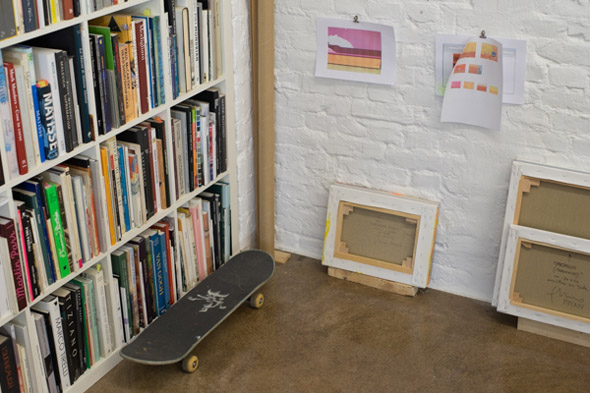
Several works in progress hang on the walls. In one experiment, de Marco has found advertisements from a tourist website and painted over all the text, leaving only the layout which features prominent horizontal lines. By erasing all the text, de Marco is left with the frame through which scenic resorts are advertised. Tourism fascinates de Marco because it is a commercial industry that profits from people’s need for landscape and scenery. Instead of treating the cause – our alienation from our physical space and our inability to connect with the environments we are in – people treat the symptom by going on organized vacations in search for a good ocean view or particularly scenic nature.
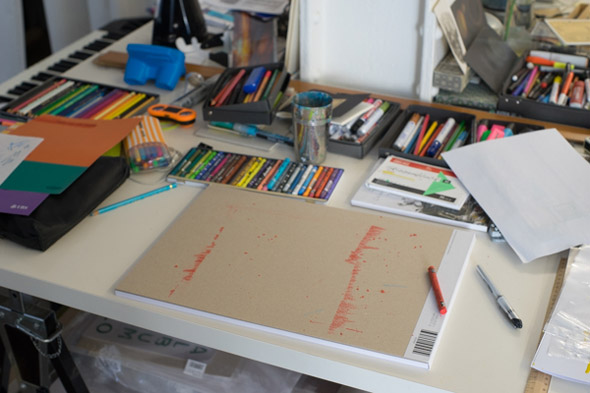
“How much time do you spend looking at the clouds and how much time do you spend looking at the computer?” de Marco asks. His paintings of computer windows make visible the tabs that frame our field of vision for the greater part of our daily experience. Most of what we see happens inside those boxes, which have become so habitual we barely notice them. This is not about nostalgia, de Marco warns us, it is not about critiquing whether things are better or worse. Passing moral or subjective judgement is not the role of art for de Marco. For him, art is about making visible what is already present but goes unnoticed, about showing what has already been seen in a different way.
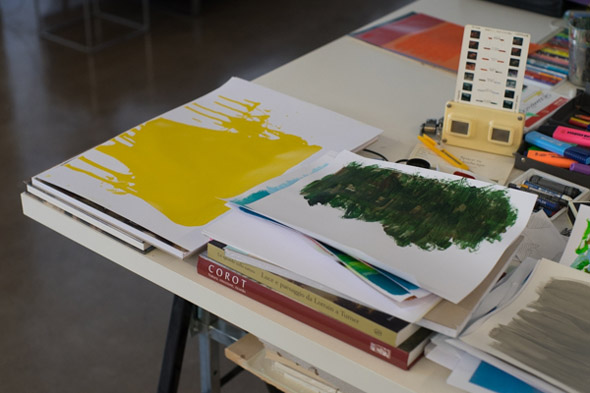
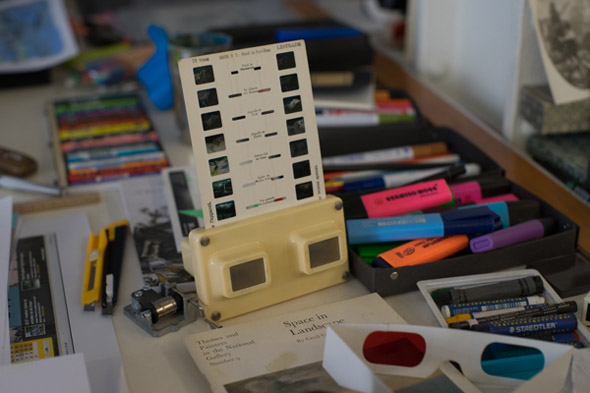
In another piece that de Marco is working on, he is repainting part of an older painting, which features an invasive browser window and behind it a sliver of ocean. Like all the computer tabs and windows in de Marco’s work, it is completely blank and anonymous, without any text that would signify the function of the window. He makes an image, even a scene from the frames we use to see instead of framing an image. He tells us that artists use language in another way, that is, not just for communication, nor to communicate a point.
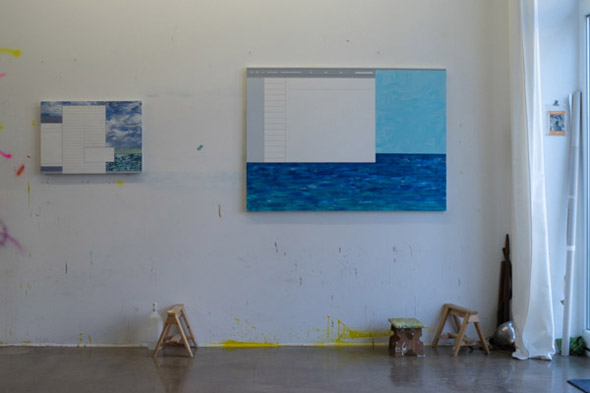
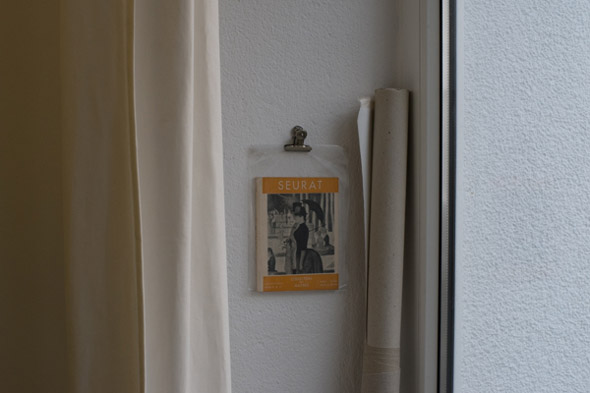
Talking about the reception of artists in Italy, de Marco explains that contemporary artists are undervalued as social figures. In a society that recognizes productivity and utility, it is difficult to recognize why we need the arts, or what artists do. “The range of misunderstanding is larger than if you were a mechanic or something” de Marco explains. “As an artist you can say, ‘I thought all week about an image but I did not get it in my mind’.”
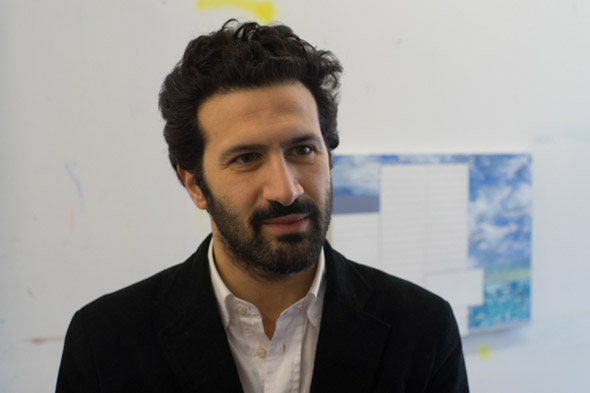
“People always want to know the point” de Marco goes on, with a colorful humor, “they say, ‘Ah, there is Flavio and he thinks the landscape is like a screen!’ And then they can say, ‘Yes, I got that.’ But you can understand something but you can’t get it in its entirety, you cannot finish understanding something.” Nor is an artwork about novelty, about showing something new. It is simply about exposing another way of seeing, or seeing something in a different way. De Marco is heavily skeptical of art that acts as a moral compass. He explains his frustration with artists who use art only to testify the problems and difficulties of contemporary times, who simply affirm and perpetuate the negative aspects of the world without offering any hope for alternatives. He cites Marcel Proust, admiring how despite the difficulty of the writer’s situation Proust offers people hope, by making something good and reminding readers of the human capacity to make good things.
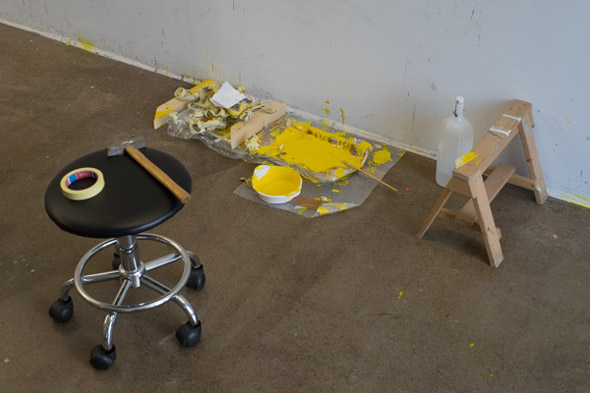
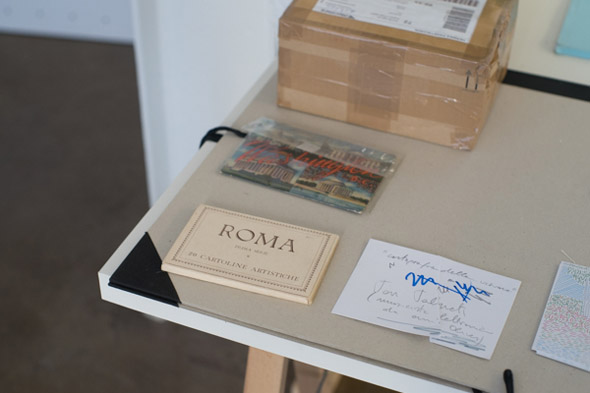
De Marco explains that the process of creating an artwork takes a similar form, with the piece being more rich than the intention. A computer, as a tool, could not produce an artwork unless you know exactly what you are going to make. The act of making a work is beyond calculation, beyond computation. De Marco’s last series of drawings, ‘Paesaggio (Tiergarten mit Mozart)’ were made en plein air, in the Tiergarten as de Marco listened to piano concerto’s ‘No. 1–27’ by Mozart, one concerto per drawing. He explains that the intention behind the work was very simple: to fill up the page with lines that never touch or cross until there was no space left. But the product is in excess of that simple formula, it is more than can be described.
Artist Info
Writer Info
Alena Sokhan is working on her Masters in Media and Communications at the European Graduate School. Her research interests lie in the topics of Queer Theory, Critical Theory, Film and New Media Art, and Economics.



















